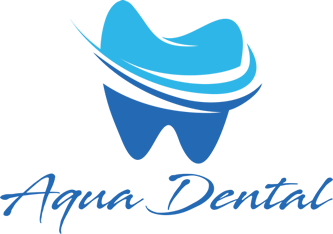Most parents don’t realize that mouth breathing is a complex health concern that can lead to sleep apnea, speech impediments, and improper facial growth. If your child is a mouth breather, call our office at 918.455.7700 and make an appointment to see a dentist.
Most people don’t know that mouth breathing can have devastating effects on the health and development of a child, and it should be taken seriously. Below are some simple strategies for parents to help their child overcome mouth breathing.
What Is Mouth Breathing?
It is perfectly natural to breathe through your mouth at certain times, such as when lifting a heavy load or exercising. Breathing through the mouth most of the time, however, can cause health problems.
Mouth breathing starts when we can’t get enough air through the nose, so the mouth takes over. This forces us to breathe through the mouth out of sheer necessity, and this can become a life-long habit if not corrected.
It is important to realize that mouth breathing and having an open mouth are really the same thing and are equally detrimental to your health.
What Causes Mouth Breathing?
The most common causes of mouth breathing are:
§ Allergies and/or food sensitivities
§ Enlarged tonsils or adenoids
§ Chronic nasal congestion
§ Respiratory infection
§ Asthma
§ Deviated septum
§ Nasal polyps
Each of these factors makes it physically impossible for a person to nasal breathes. If nasal breathing is not possible, the body’s only choice is to breathe through the mouth.
How Does Mouth Breathing Affect the Body?
Mouth breathing has a number of detrimental effects on the mouth and body:
The Tongue
Mouth breathing changes the way the tongue works and where it rests in the mouth.
Your tongue should naturally rest in the top of your mouth, however, when your mouth is open it rests in the bottom. This leads to underdeveloped oral musculature and can cause problems with speech, swallowing, breathing and chewing. When the tongue rests low in the mouth, it must push forward to swallow – this is called a tongue thrust.
Tongue thrust and mouth breathing always go hand in hand – so if you’re mouth breathing, you also have a tongue thrust swallowing pattern.
Facial Growth and Development
Believe it or not, breathing through your mouth can actually change the shape of your face and alter your appearance.
This is especially true for children because they are still growing. Children whose mouth breathing is not corrected may suffer from abnormal facial and dental development.
Symptoms of untreated mouth breathing include long, narrow faces and mouths, less defined cheekbones, small lower jaws, and weak chins. Other facial symptoms include gummy smiles and crooked teeth.
A “mouth breather” facial expression is typically not viewed as an attractive or desirable appearance.
Other Effects on the Body
Using the mouth for breathing disrupts our natural body mechanics. The root of the problem in many cases is oxygen deprivation, which can affect a number of bodily functions and lead to symptoms such as:
§ Headaches
§ Gingivitis and gum disease
§ Sore throat and cold symptoms
§ Bad breath
§ Increased risk of cavities
§ Poor sleep leading to chronic fatigue
§ Digestive disturbances – gas, upset stomach, acid reflux, etc.
In children, mouth breathing has been linked to poor growth and weak academic performance, as well as ADD and ADHD symptoms.
In adults, the poor oxygen concentration in the bloodstream has been associated with high blood pressure, heart problems, sleep apnea and other medical issues.
In addition, breathing through your mouth can lead to postural changes and spinal issues. When the tongue is in the wrong position, the head tends to rest forward, causing the shoulders to slump. When the mouth is open, it’s also more difficult to sit up straight.
The Teeth and Braces
Mouth breathing can also affect the position of your teeth and your bite. When the mouth is open, the lips are weak and there’s no external support for the teeth. The tongue simultaneously pushes forward, progressively moving the teeth over time.
This can cause problems with orthodontic treatment. Time spent in braces will be longer, and the chance that the results won’t be permanent is far higher.
What Can Be Done to Treat Mouth Breathing?
Mouth breathing may seem like an easy habit to change – just close your mouth, right?
Unfortunately, for people who struggle with mouth breathing, it’s not that easy. The body simply doesn’t know how to breathe normally, and the muscles of the face and mouth have compensated and learned to work incorrectly.
The best way to fix mouth breathing depends on what is stopping you from breathing through your nose. If your child has a deviated nasal septum, for example, they might need surgery to correct that. If your child has asthma, you may need to talk to your doctor about treatment.
It’s also important to stay in touch with your dentist. Everyone should have a dental appointment once every six months or so, but seeking care is especially important if you have been breathing through your mouth for quite some time. One of our dentists can examine your child’s mouth and let you know what effects mouth breathing has had and made a recommendation for treatment that will help.


Recent Comments